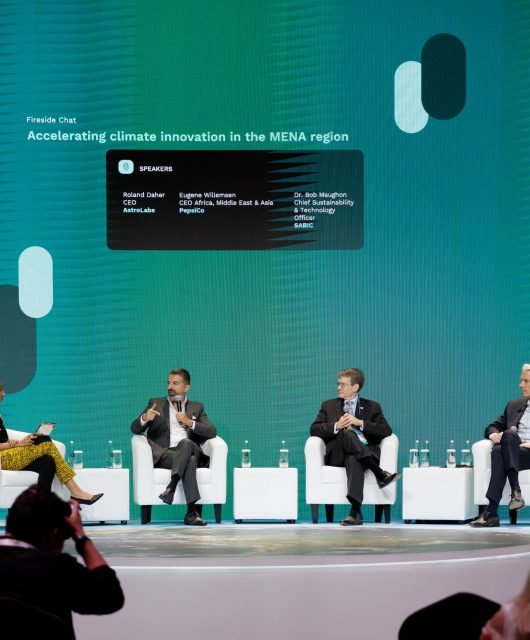Marketers Return To MMM To Evaluate The Effectiveness Of Multi-Channel Campaigns In A Complex Media And Retail Environment
Consumers use 20+ channels to interact with brands
|
A new WARC and Amazon Ads knowledge paper. Next wave measurement: Marketing Mix Modelling in the age of retail media July 12, 2023 – Advertising budgets are under increasing scrutiny and rapidly-changing retail conditions are demanding improved solutions for justifying and optimising marketing investments. A focus on evidence-based planning and durable measurement solutions is driving a return to Marketing Mix Modelling (MMM). The availability of more accurate, timely and relevant ‘always-on’ data is now being utilized to advance analysis, making MMM state-of-the-art for today’s complex media and retail environment. |

Next wave measurement: Marketing mix modelling in the age of retail media, is a new report released today by WARC in collaboration with Amazon Ads. The report demonstrates the benefits of MMM in a world where retail media influence continues to expand, and highlights the advances being made in support of greater industry adoption.
Paul Stringer, Managing Editor, Research and Advisory, WARC, says: “Retail is already the fourth-largest advertising media, with advertising spend overtaking audio, OOH & cinema, publishing and OTT/streaming, according to our data. By 2025, if the retail media industry follows its current path, it will become more valuable to advertisers than linear TV.
“Marketers need solutions that enable them to understand the holistic impact of their advertising. This is where Marketing Mix Modelling (MMM) has a critical role to play. The goal of this knowledge paper is to educate marketers on the broad benefits of MMM, while taking a closer look at how modelling can now be used to assess retail media performance.”
Chris Rees, Global Measurement Lead, Amazon Ads, says: “As shopping habits continue to evolve, both retailers and marketers face ever greater complexity. Of course, with disruption, there’s opportunity. The rise of digital commerce has led to the emergence of retail media as a major advertising channel, and there is a need to support marketers to find creative and compelling solutions to prioritise the right media channels to amplify their brand and meet their goals.
“In this report, we address how Marketing Mix Modelling can help support key decisions facing marketers and provide measurement across physical and digital channels to ensure they are ready to successfully ride the next wave of digital advertising.”
Key insights outlined in ‘Next wave measurement: Marketing mix modelling in the age of retail media’ report are:
- Consumers use 20+ channels to interact with brands
The growth of retail media is adding increased complexity for marketers. Research by Upland BlueVenn suggests that today’s ‘hybrid consumer’ interacts with a brand across 20 channels, on average. Additionally, more than half (56%) of US marketers are now working with five or more retail media networks, but a lack of standardisation is a major challenge, according to research by the ANA.
For marketers to optimise their marketing plans across online and in-store channels to boost overall sales and foster customer loyalty, the right measurement solutions are required.
This is leading to an increased adoption of Marketing Mix Modelling (MMM). One advantage of MMM over other measurement techniques is it is capable of evaluating all media and retail channels and assessing the long-term effects of advertising.
Moitree Rahman, Associate Director, Data Activation and Measurement Strategy, Colgate-Palmolive, said: “MMM is really helping us look at the next level, at both macro and micro channels in each category. We can pinpoint where things aren’t working and which levers we need to pull to optimise them in campaign, in flight, or in scenario planning.”
- Marketers find MMM valuable in the age of retail media
Marketing Mix Modelling is experiencing a renaissance as more data becomes available to connect marketing and retail channel activity.
The reasons marketers are finding MMM valuable for analysing retail media environments are:
(1) Identifying incremental sales: MMM has the ability to separate sales that would have happened anyway from sales driven specifically by marketing – ‘incremental’ sales – a critical input for budget setting and prioritisation.
(2) Isolating channel effect: MMM helps identify the individual contributions of each channel utilised by a brand, taking into account category dynamics and external market factors.
(3) Demonstrating online and offline synergies: MMM is able to reveal the relationship between media and retail channels and help marketers understand the effectiveness of multi-channel campaigns.
(4) Understanding branding vs. sales activation: MMM can reveal the distinct contribution between brand building and sales activating strategies for the short and long term.
(5) Durable measurement: MMMs leverage aggregated and anonymized signals from a vast variety of media channels and retail formats enabling marketers to compare across channels in a secure and privacy safe manner.
- MMMs offer new opportunities through speed, relevancy and accessibility
Next-generation MMM solutions are more accessible, faster to use, and able to produce detailed analysis by individual sales channels rather than an aggregated view, helping brands improve their retail partner and retail media strategies.
Speed: Modern MMMs can deliver results in a matter of weeks or even days by removing the need for manual data management.
Relevancy: MMMs can now be used to support tactical decisions around audiences, placements, messaging and creative rather than macro decisions focused solely on channel prioritisation.
Accessibility: Larger tech companies, as well as specialist consulting firms, are promoting DIY tools that use open-source code with a view to making MMM accessible to a broader range of advertisers.
Vasileios Kourakis, Global Director ROI & Media Lead, L’Oréal, says: “Nowadays the complexity of the touchpoint landscape requires more data collection as new touchpoints have emerged such as Virtual Try-Ons, Ratings and Reviews, etc. and as the majority of time is spent on data collection, the more automation the faster the delivery”
|
A complimentary copy of the full report, which includes best practices for marketers, expert insights from executives at Amazon Ads, Analytic Edge and Colgate-Palmolive, and case studies from Johnson & Johnson, L’Oréal and Reckitt, is available to read here. |





